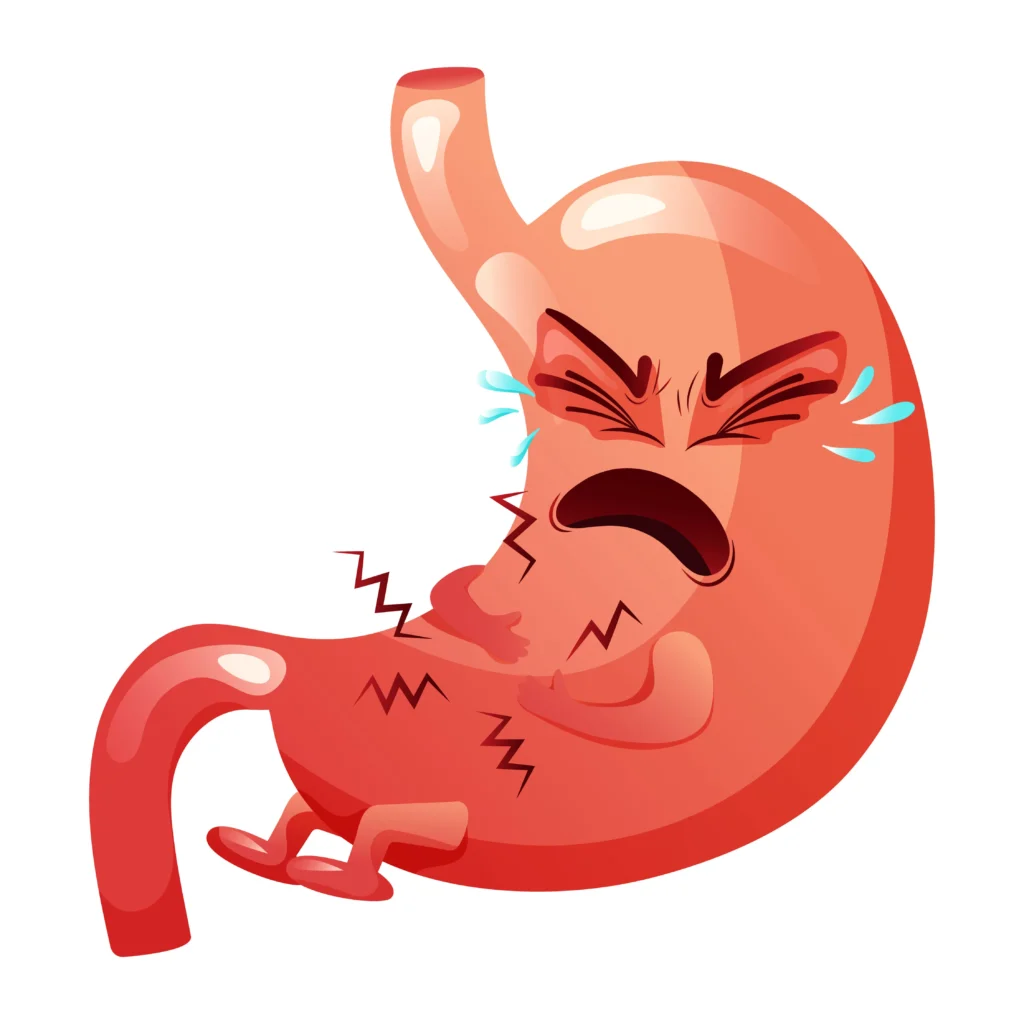If you’ve ever experienced persistent stomach pain, bloating, or nausea, you might have wondered if it’s “just indigestion” or something more serious. One of the most common causes of stomach ulcers is a bacterium called Helicobacter pylori (H. pylori).
At Greenleaf Medical, we see many patients each year with stomach aches that turn out to be linked to H. pylori. The good news? With proper diagnosis and treatment, this condition is both manageable and preventable.
What is H. pylori?
H. pylori is a type of bacteria that lives in the digestive tract and can damage the stomach lining. It’s surprisingly common; about 30–40% of people in the U.S. are estimated to carry H. pylori, but not everyone will develop symptoms.
When left untreated, H. pylori can lead to:
- Peptic ulcers (open sores in the stomach or upper intestine)
- Chronic gastritis (long-term stomach inflammation)
- An increased risk of stomach cancer in rare cases
How Does H. pylori Cause Ulcers?

Normally, your stomach lining is protected by a thick layer of mucus. But H. pylori bacteria weaken this protective barrier and allow stomach acid to damage the underlying tissue. Over time, this irritation can create painful sores, also known as ulcers.
Common symptoms of H. pylori infection include:
- Dull or burning stomach pain (often worse when your stomach is empty)
- Bloating or feeling full after small meals
- Nausea or frequent burping
- Loss of appetite or unintended weight loss
- In some cases, blood in stool or vomit (a serious warning sign)
How is H. pylori Diagnosed?
If you’re experiencing ongoing stomach aches or ulcer-like symptoms, your doctor may recommend tests such as:
- Breath test – detects carbon dioxide after drinking a harmless solution
- Stool test – checks for H. pylori antigens
- Endoscopy – allows your doctor to examine the stomach lining directly.
At Greenleaf Medical, we guide patients through safe and accurate testing, so you can get clear answers quickly.
What Are the Treatment Options?
The standard treatment for H. pylori is called triple therapy, which usually includes:
- Two antibiotics (to kill the bacteria)
- A proton pump inhibitor (PPI) (to reduce stomach acid and promote healing)
In some cases, doctors may add other medications depending on your health history or if antibiotic resistance is a concern.
It’s very important to complete the full course of treatment, even if symptoms improve early. Stopping too soon may cause the infection to return.
Can H. pylori Be Prevented?
While you can’t always avoid exposure, you can reduce your risk with these steps:
- Wash your hands thoroughly before eating or preparing food.
- Drink clean, filtered water
- Avoid sharing eating utensils when someone is sick.
- Limit use of NSAIDs (like ibuprofen), which can worsen ulcer risk
When to See a Doctor
If stomach aches, indigestion, or nausea keep interfering with your daily life, it’s time to get checked. Early treatment of H. pylori infection can prevent ulcers and protect your long-term health.
At Greenleaf Medical, our experienced physicians provide comprehensive stomach ulcer care, from accurate diagnosis to personalized treatment. We take a patient-first approach, ensuring you get the right care for lasting relief.
American College of Gastroenterology guideline on current treatment regimens.
Ready to Take the Next Step?
Don’t ignore recurring stomach pain — it could be more than just indigestion. Schedule your consultation with Greenleaf Medical today and get on the path to relief.
